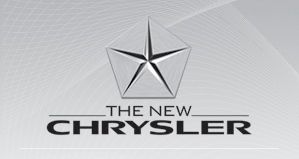With only the Belvidere, Illinois assembly plant and one smaller plant left to vote – today and Saturday – ratification of the controversial contract between the United Auto Workers union and Chrysler, LLC seems to be a done deal. Despite substantial initial opposition, recent votes have favored the contract and union insiders report that the current vote total is 56% in favor of ratification, with an estimated 90% of the votes already having been cast. Even an overwhelming “no” vote at the two remaining plants would not, in view of the number of members working at those plants, be sufficient to defeat the contract.
Though many Chrysler workers opposed the deal, it appears those workers most intimately familiar with the Detroit auto industry – the ones working in Chrysler’s Detroit-area assembly plants – had few doubts about the deal. They voted in favor of the pact by very large margins. Detroit area autoworkers may, of course, be thought most vividly aware of the risks that vetoing the contract would carry, not merely for their jobs, but for the entire area’s industrial base. The “yes” vote in some Detroit area plants approached 90% of the total vote.
This leaves the UAW with only Ford remaining, and the pattern of the contracts at GM and Chrysler clearly defines the objectives at the bargaining table with Ford. Ford has already publicly acknowledged that it is able to live with a similar agreement, so the negotiations should be limited to details.
However, there may be more effort at publicly communicating with UAW members. Ford’s continued sales decline has put the company in more precarious financial position than ever before, and even Chrysler could be considered in better financial condition. Funding a VEBA does not provide to Ford immediate cost relief and it does use up money that otherwise could be invested in new products. The pressure on Ford to cut costs immediately is intense.
On the opposing side, the UAW leadership is certainly aware that the initial negative Chrysler vote reflected a deep undercurrent within the union of people who are angry at the position in which they find themselves. Ford workers may have similar sentiments: a health-care give back negotiated between the union and company two years ago was ratified with only 51% of the vote. If the Ford contract is seen as giving away too much or not getting enough in return, the UAW leadership is going to have to do a better job of selling the wisdom of the contract than it has in the past, apparently using strikes at GM and Chrysler more as a means of softening up its own membership than negotiating with management.
Nevertheless, with the Chrysler contract ratification apparently certain, it is clear that the one company which was a wild card, Chrysler, has fallen into line with GM in contract negotiations, as always. The revolutionary approach which some expected now that Chrysler is owned by Cerberus didn’t appear. Chrysler got the health care concessions that Ford and GM were given two years ago, and otherwise agreed to fund a VEBA and keep certain plants operating. Because Chrysler’s retiree health care liability is lower per capita than that of GM, the VEBA deal is less costly per worker than it is at GM.
That Cerberus was willing to cut the VEBA deal, seemingly without thinking twice about doing it, raises a question about the long-term commitment of Cerberus to the company. GM and Ford, as publicly owned companies, care deeply about their earnings.
A VEBA is basically a lump sum payment of billions of dollars so that a public company can say, thereafter, that it is making a profit because its costs are now lower. It is a transaction, nonetheless, in which the company is spending money – it’s just doing it now rather than later, taking it out of savings or borrowing it, rather than taking it out of earnings in the future. Hence, it really is an accounting trick of sorts.
Chrysler, however, had no reason to do that because it is not accountable to anyone by Cerberus for its earnings reports. It does not need, at least in theory, to worry about short-term earnings and stock prices that are affected by those earnings.
The VEBA deal at Chrysler looks to be intended to position Chrysler as showing better earnings, and doing it rather quickly. It spends money on the VEBA that could have been spent on developing new products, products that would be on the market in five years. That the investment in future product is not being made may indicate that those who currently own the company don’t plan to be around that long.

